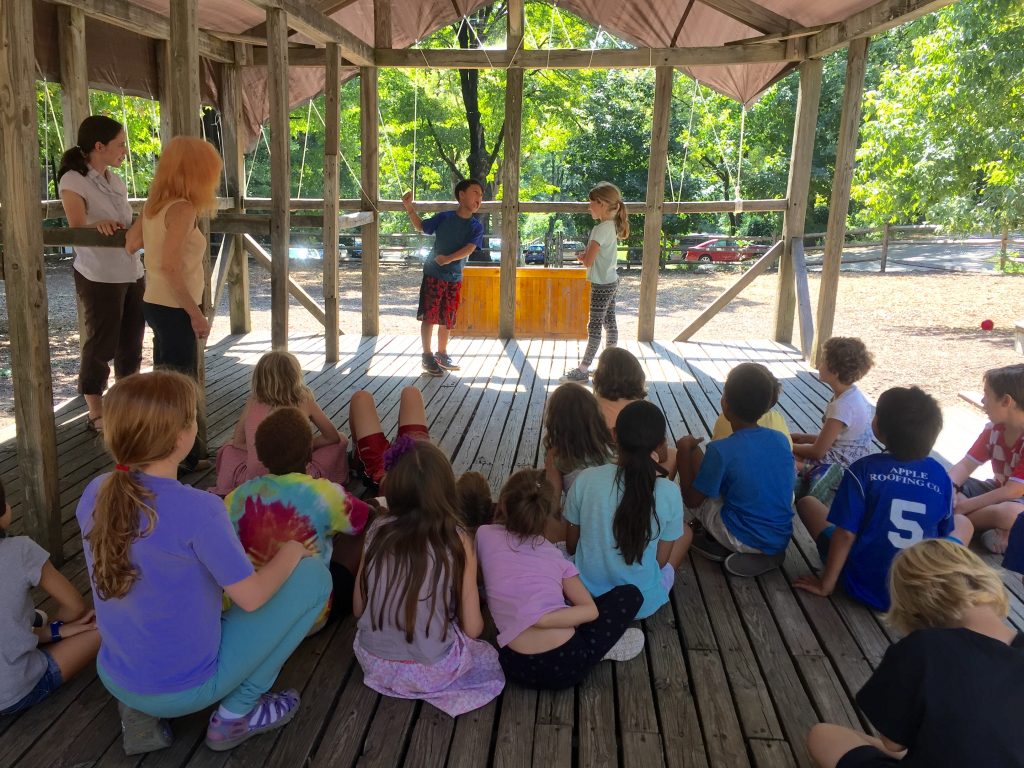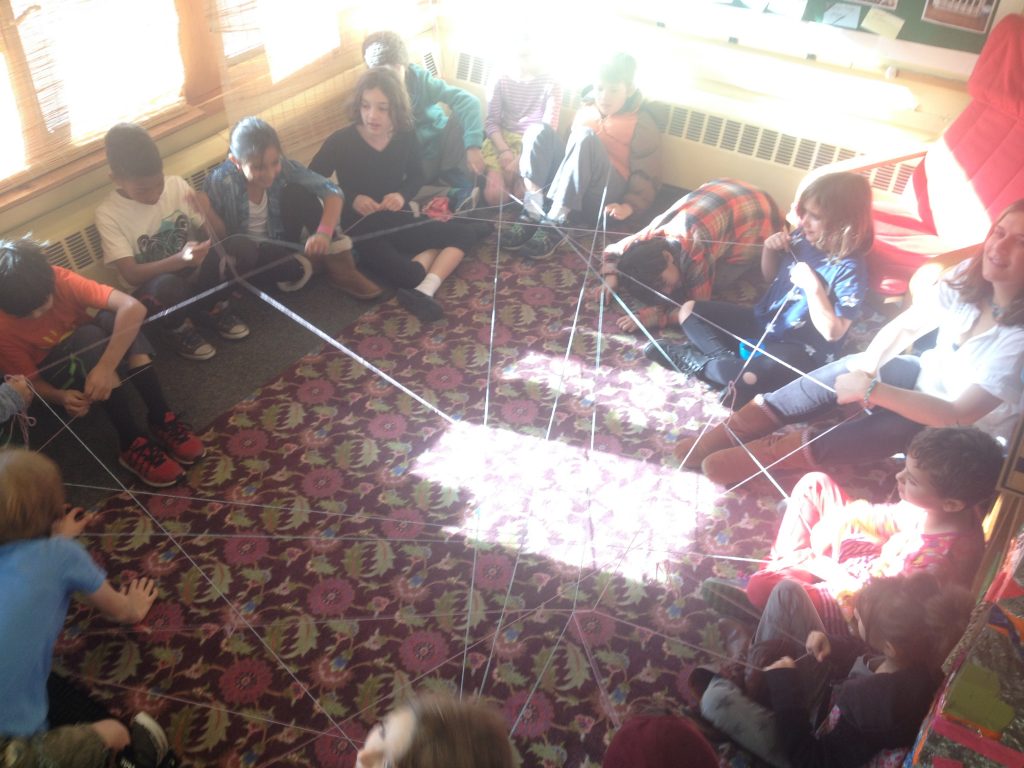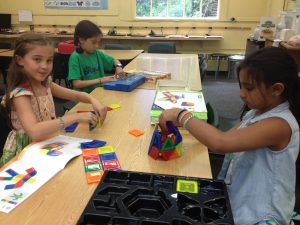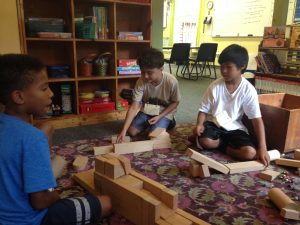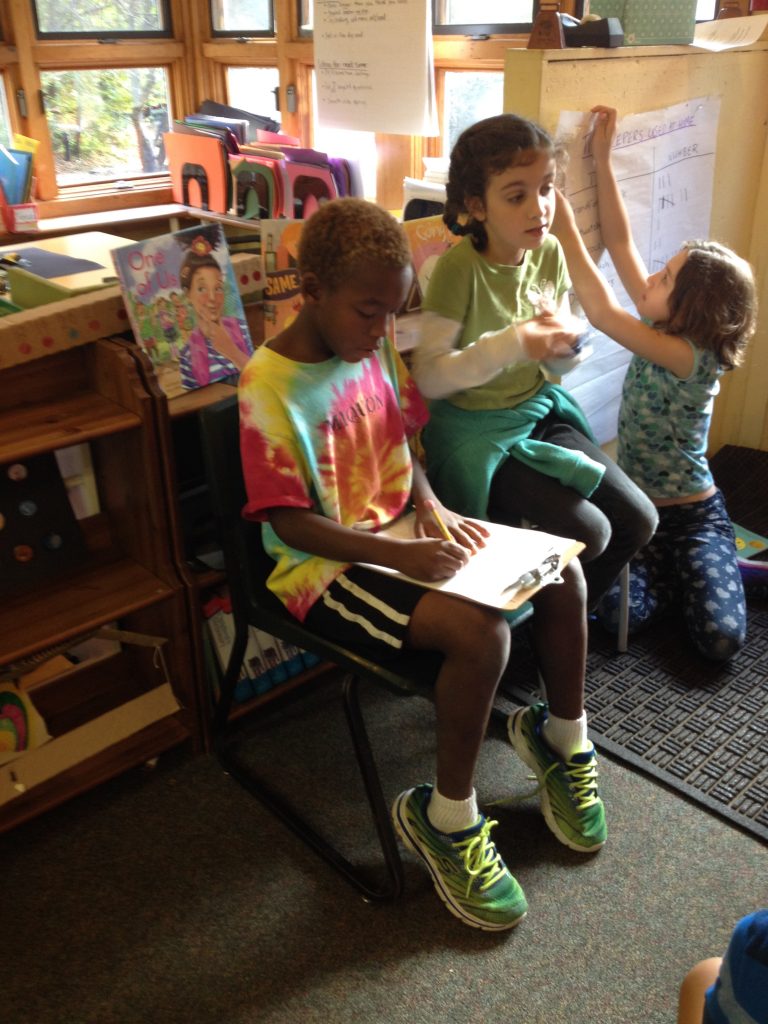The Good of the Group
At Miquon, we believe that social and emotional growth is so integral to childhood that academic work cannot be seen as something our children are doing separately from their lives as friends. Building community, understanding oneself as a friend and member of a community — this is essential work. With all that keeps us busy in the school day, we are committed holding the space for it.
What does this look like? We build in some intentional places into our schedule; other important moments, of course, just come up. I have found that in my adult life, we often rush by these moments. It is tempting to do so in school, too: when it is time to go to science or for the next lesson to kick off, it can feel like we don’t “have time” for this. And yet we know it is some of our most critical work. (It is also true that when feeling hurt or angry, no one will be likely to do their best classroom learning, either!)
So instead of glossing over conflict or problems, we try to stop, take a pause, make a space to listen to one another, and practice the skills of empathy and conflict resolution. When I first came to teach at Miquon, I was struck by the children’s language when they spoke about their own feelings or tried to reconcile after a problem. I saw the effects of the work they had done in their early years here, and they had tools they could use in difficult moments because they were familiar from practice.
One of our daily practices is morning meeting, a time to greet each person into the circle, share something from our life, perhaps lift up appreciations. Yesterday morning, the children passed a ball of string across the circle with a word of kindness or compliment for a classmate, and eventually created a web to connect us all.
Other daily practices include our shared lunch conversations, and “morning work” traditions that help us to connect and work out relationships through playing board games, reading from our morning journals, or tinkering and building together. As conversations or misunderstandings arise in these settings, we can take the opportunities to practice relationship building skills.
Twice a month we also gather in a meeting we call “Good of the Group.” Modeled on Miquon’s monthly assembly tradition of Good of the School, this meeting is child-led, and usually includes the same steps: Announcements (“Card games at choice time today, anyone?”), Problem and Concerns, Solutions, and ending with Appreciations.
In our recent Good of the Group session last week, there were so many moments I relished from my spot at the back of the rug:
- The two earnest leaders setting up their clipboards and sharpened pencils, dividing responsibilities, and consulting in whispers throughout as they have observed their sixth grade friends do at assembly.
- The careful efforts of friends to balance the contributions of more talkative voices with those we don’t hear from as often.
- The range of problems raised: thumbtacks being found on the floor, children not being mindful of comments they make during four square, people forgetting their classroom jobs.
Then the solutions are proposed, discussed, and agreed upon, again with the children facilitating and taking notes that will be posted for future reference. Sometimes the children taking the facilitator role find that leading comes naturally to them. Other times, the leaders of the meeting can be less outgoing kids, yet this structured role may bring out their courage and their gifts for listening and mediating.
Watching the children engage seriously in this process gives me hope. They are building skills that will serve them so well in life: careful listening, balanced response, building consensus, and thinking of the greater good. I imagine these will be valuable tools for their lives as citizens in a democracy — wherever their paths after Miquon may take them.
